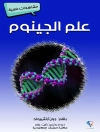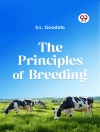This book comprehensively covers critically investigated information on medicinal plants prioritized for their anti-allergy properties. It offers insights into strategies related to the distribution, mechanism of action, and assessment of antiallergic medicinal plants, and also delves into crucial aspects of modern biotechnological tools, addressing their implementation challenges, presenting innovative approaches through case studies, and exploring opportunities for nanotechnologies. These elaborated discussions aim to raise awareness and bridge the gap between human health and the biodiversity of antiallergic medicinal plants. As the book navigates the uncertainties of plant-based medicines in the post-COVID-19 era, it provides real-world applications showcasing the specific utility of medicinal plants through advanced biotechnological insights. This book covers several medicinal plants associated with antiallergy, exploring their modes of action, available secondary metabolites, and estimation methods. It also emphasizes all modern biotechnological interventions aimed at propagating, multiplying, and conserving this unique treasure trove of medicinal plants.
The World Health Organization estimated that 80% of the populations of developing countries rely on traditional medicines, mostly plant drugs, for their primary health care needs. Increasing demand in both developing and developed countries resulted in the expanding trade of medicinal plants and has serious implications for the survival of several plant species, with many under threat of becoming extinct. This book describes various approaches to conserving these genetic resources. It discusses the whole spectrum of biotechnological tools from micro-propagation for large-scale multiplication and cell-culture techniques to the biosynthesis and enhancement of pharmaceutical compounds in plants. It also discusses the genetic transformation as well as short- to long-term conservation of plant genetic resources via synthetic seed production and cryopreservation, respectively. This reference book is useful for researchers in the pharmaceutical and biotechnological industries, medicinal chemists, biochemists, botanists, molecular biologists, academicians, students as well as allergic patients, traditional medicine practitioners, scientists in medicinal and aromatic plants, and other traditional medical practitioners.
Зміст
Chapter 1. Investigating the use of biotechnologically enhanced medicinal plants in allergy treatment.- Chapter 2. Medicinal plants, secondary metabolites, and their antiallergic activities.- Chapter 3. Exploring nature’s pharmacy: indigenous plants of southern Africa with antiallergic properties and their mechanism of action.- Chapter 4. Antiallergic implications of curcumin during COVID-19: current status and perspectives.- Chapter 5. Plant-derived antiallergic active ingredients for food allergies.- Chapter 6. Recent advances in saffron (Crocus sativus L.) micropropagation: a potential plant species with antiallergic properties.- Chapter 7. Antihistaminic activity of shikonin from biotechnologically-grown Echium italicum L.- Chapter 8. The anthelmintic impact of Nyctanthes arbor-tristis leaves-an antiallergic plant on Caenorhabditis elegans.- Chapter 9.Facile green synthesis of silver nanoparticles using Passiflora edulis and its efficacy against the breast cancer cell line.- Chapter 10.Effect of sodium nitroprusside on morphogenesis, and genetic attributes of in vitro raised plantlets of Curcuma longa var. Lakadong.- Chapter 11 – The power of Citrus: antiallergic activity and in vitro propagation techniques.- Chapter 12 – Recent advances in micropropagation of Phoenix dactylifera: a plant with anti-allergic properties.- Chapter 13 – Cell suspension culture-mediated secondary metabolites production from medicinal plants with antiallergy properties.- Chapter 14 – In vitro plant regeneration of Agapanthus praecox alternatives to silver nanoparticles production and synthesis of antimicrobial silver nanoparticles.- Chapter 15 – Current elicitation strategies for improving secondary metabolites in medicinal plants with antiallergy properties.- Chapter 16 – Antiallergic metabolite production from plants via biotechnological approaches.- Chapter 17 – Improvement of the antiallergic plants via whole genome duplication.- Chapter 18 – Agrobacterium rhizogenes-mediated genetic transformation: a potential approach to enhance the antiallergic potential of medicinal plants by endorsing the production of responsible phytochemicals, – Chapter 19 – Production, storage and regeneration of synthetic seeds from selected medicinal plants with antiallergic property.- Chapter 20 – Progress and prospect in ex situ conservation of Zingiberaceae harbouring antiallergic compounds.- Chapter 21 – Cryoconservation of antiallergic medicinal plants: techniques and applications.- Chapter 22 – In vitro approaches for conservation of medicinal plants with antiallergic properties
Про автора
Saikat Gantait
Dr. Gantait is an Assistant Professor in Genetics & Plant Breeding, at Bidhan Chandra Krishi Viswavidyalaya. He gained advanced research experience while working as a Research Associate in Govt. of India-funded project, followed by working as a Post-Doctoral Researcher at Universiti Putra Malaysia. He has guided/co-guided multiple MSc and Ph D students. His 17-year research works include molecular markers, plant tissue culture, polyploidy-induction, synthetic seed, and cryopreservation of medicinal and ornamental plant germplasms. He is acting as an Editorial Board Member in multiple journals Springer Nature, Elsevier, and Frontiers. He has reviewed 400+ manuscripts as an ad-hoc reviewer in 70+ eminent journals from Springer, Elsevier, Taylor and Francis, PLo S, Wiley, etc. His name has been included in the list of Top 2% Scientists Worldwide (2023) by Stanford University. To date, he has published 150+ articles/chapters/books in peer-reviewed journals and books (cumulative 300+ Impact Factor, 4000+ Google Scholar citations), mostly as the first/senior author.
Jayoti Majumder
Dr. Majumder is an Assistant Professor in Floriculture and Landscaping. She received her MSc (Hort.) and Ph D (Hort.) degrees from Indian Agricultural Research Institute, New Delhi, India, and has been working in the field of Floriculture and Landscaping for more than 11 years very effectively and made measurable impact as a passionate floriculturist for all those fields related to flower nutraceuticals, secondary metabolites, edible flowers, floral pigment, flower preservation, application of nanotechnology in floriculture and phytoremediation through aquatic ornamentals. She was initially appointed as a Scientist under ICAR-DFR, New Delhi/Pune, India. She guided multiple M.Sc. and Ph.D. students. Her research works have been published in 30+ articles in National and International journals. She was selected for a trainingprogram in Wuhan, China on Seed production and crop improvement. She is an active member of several science academies and societies IAHS, SPH, and CWSS, and an editorial board member of JCW and SPH.
Amit Baran Sharangi
Dr. Sharangi is a Professor at Bidhan Chandra Krishi Viswavidyalaya and has been involved in teaching, research, and extension for about 25 years. He completed his Doctoral degree from BCKV and Post-Doctorate from the University of Melbourne, Australia. He has received his scientific training from IISR, IIHR & ARO (Tel Aviv, Israel). His areas of expertise are herbs, spices & medicinal and aromatic plants. He has done extensive research in laboratories in Australia, the USA, and the UK. He has several international awards including Fulbright (USA), INSA-RSE Visiting Scientist (UK), ENDEAVOUR Award (Australia), Marquis Who’s Who (USA), Young Achievers Award (SADHNA), Higher Education Leadership Award, Outstanding Scientist Award, Bharat Ratna Mother Teresa Gold Medal Award, etc. He has published about 90 peer-reviewed papers, 25 books from Springer Nature, Taylor & Francis, Nova Publisher, CRC Press, etc. He is also associated with 50 journals worldwide as editor-in-chief, editorial board member, and active reviewer.












